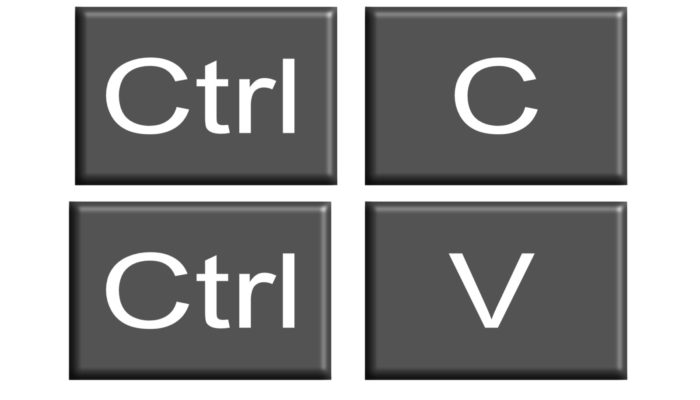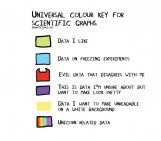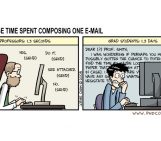
Hey you! Do you have 5 minutes to talk about plagiarism?
Have you ever wondered if some parts of a thesis that you have supervised are simply a copy-paste from another thesis or article? This week, an anonymous guest author will tell us about their personal experience with plagiarism in science and what can be done against it.
Granted, it is not the most fascinating topic. Until recently, I really thought there was nothing to say about it. Everybody agrees that plagiarism is bad, and one shouldn’t do it, right? Plagiarism is just for a pair of lazy bachelor students or maybe one or two entitled old professors who believe they are untouchable, right? Right?! Oh boy, was I naive!
For me, it all started with reading a few words that do ring a bell on a master student thesis that I had co-supervised. After some more investigation, I realized that this student did indeed copy and paste sentences and even paragraphs from my PhD thesis, as well as from other articles. He did also plagiarize in former assignments and in a scientific article he published in a journal at the beginning of the year. Uh uh. At this point, the student had already defended his thesis and just got his master degree validated. In the process, the thesis had been evaluated by two independent reviewers and also had been read by my two PhD advisors. Nobody suspected anything. And this happened at THE top Earth science research institution of a country which is renowned for the quality of its research. No problem, I think, I contact the co-supervisor and the director of studies. For sure they’ll know what to do. Hahaha. I spare you the details, but, to sum it up, the master degree had already been awarded, so there was no way whatsoever to change anything about it.
I didn’t make friends this past few weeks by insisting and playing the self-righteous scientist card. The student still got his master and will soon be enrolled in the PhD program of the same institution. However, my complaining seems to have had some effect. In the institution in question, they will buy the rights to a plagiarism scanner software and create a special commission to deal with plagiarism cases. From now on, master students will have to include a declaration of originality for their master theses, and they will have a course on research integrity. If the same situation arises, there will be official tools to deal with it, and hopefully the education the students will receive will help prevent plagiarism.
So yes, sometimes it’s worth it to be (a bit) annoying. Here are a few other things you might want to consider in order to avoid this kind of situation.
Plagiarism and “self-plagiarism” (also called text recycling) are not allowed by most journals, however, there is quite a large part of the scientific community that does not see the problem with self-plagiarism and does it regularly in articles. Some copy whole paragraphs from former articles of theirs and, sometimes, these articles pass the plagiarism scan that journals generally do. So it is really worth it to scan for plagiarism every paper you receive to review. That’s how I gave my fastest peer review ever: 5 minutes to scan the article, 5 min to realize that a whole section was a copy and paste from another article, and 5 min to write a rejection message.
Check every thesis, every draft and every paper you receive with a plagiarism software. You might have some surprises. If you do so, you’re making students/co-authors a favour. Had I done that check with my student prior to his thesis submission, he could have had the chance to make things right, avoided cheating on an exam, and got his master degree fair and square. Instead of this, he has to walk around with a master diploma he didn’t really earn. Not a good start in one’s professional life. Same with co-authors: if you catch their plagiarism, you save all your team the embarrassment of getting your paper rejected by a journal because of this.
It might be a good idea to check the policy of your institution on plagiarism before you’re faced with the situation I described earlier. If there is nothing planned, urge people in charge to set up some procedure. You don’t want to be in the situation of catching a student after his master has been validated and not being able to do anything about it.
Finally, to people who practice text recycling: if you want to copy a sentence from another article because it is the best sentence to describe your thoughts… Why not putting quotes? If you don’t, you’re just being dishonest.




